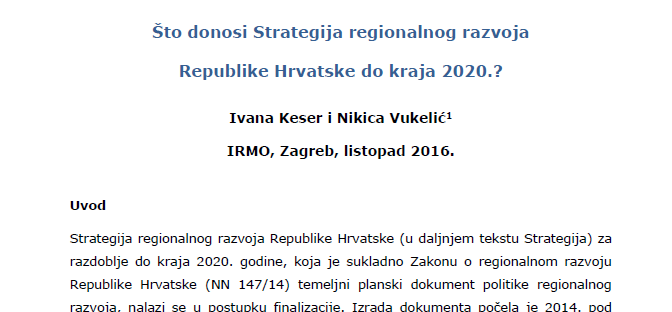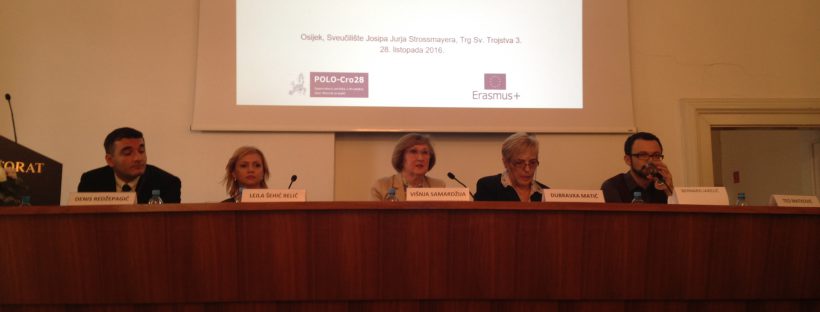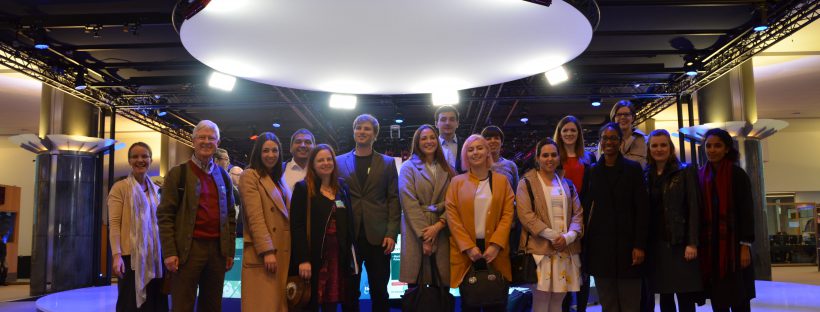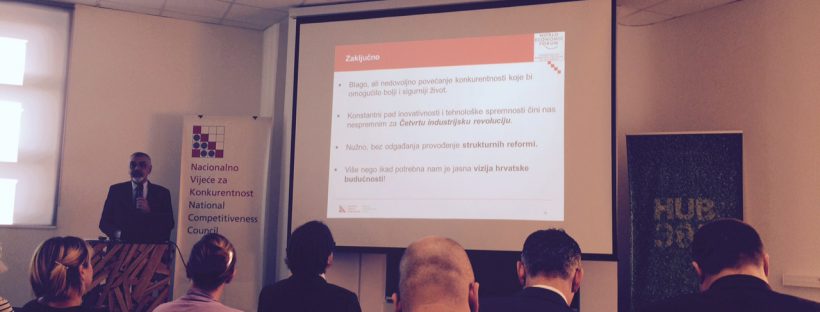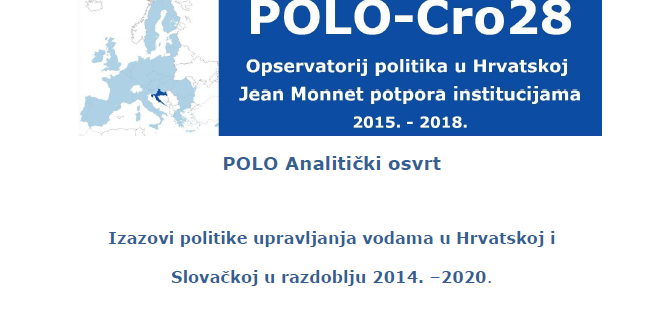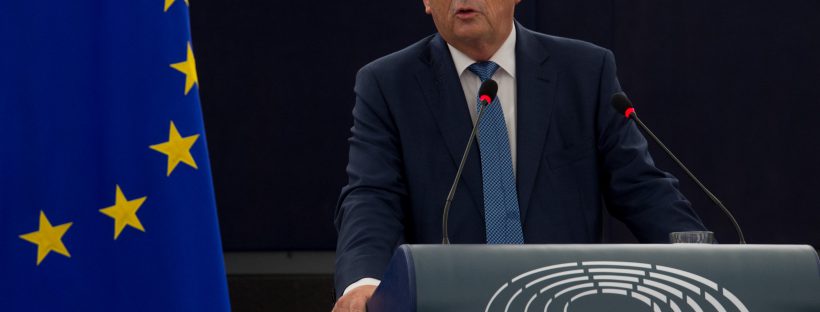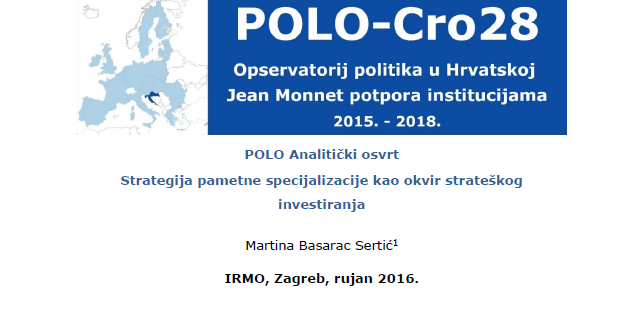Presentation of the PONT – Career Skills Training held in IRMO for the IRMO research team implementing project POLO-Cro28 – Policy Observatory in Croatia
Institute for development and international relations – IRMO
4th November 2016, 11.00 – 12.00
An informative presentation on PONT – Career Skills Training was held on 4th November, 2016 at the Institute for development and international relations – IRMO. The PONT – Career Skills Training was organized by The Trans European Policy Studies Association – TEPSA in the framework of the Professional Training on EU Affairs – PONT project, co-funded by the ERASMUS+/Jean Monnet Programme Support to Institutions. The training took place in Brussels, October 17-21, 2016. IRMO researcher and PONT Training participant Ivana Skazlić has presented main insights and shared the knowledge and experiences she gained during the program related to the topics of writing of policy bfriefs and press releasses as well as interviewing the policy-makers. Presentation was intended to young IRMO researches who are writing short analytical commentatires in the framework of the POLO-Cro28 project, co-funded by the ERASMUS+/Jean Monnet Programme Support to Institutions, currently being implemented by IRMO. In addition, the presentation was also attended by POLO-Cro28 project’s mentors from IRMO and other IRMO researches.



